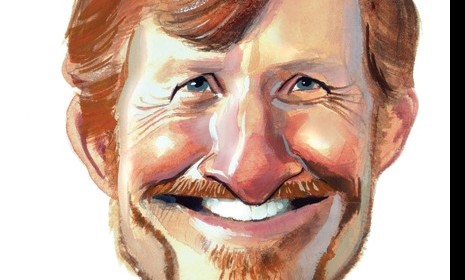How culture feeds into the poverty trap
Why are some countries wealthy while others seem doomed to eternal poverty?
A free daily email with the biggest news stories of the day – and the best features from TheWeek.com
You are now subscribed
Your newsletter sign-up was successful
How culture feeds into the poverty trap
Robert Samuelson
The Washington Post
The Week
Escape your echo chamber. Get the facts behind the news, plus analysis from multiple perspectives.

Sign up for The Week's Free Newsletters
From our morning news briefing to a weekly Good News Newsletter, get the best of The Week delivered directly to your inbox.
From our morning news briefing to a weekly Good News Newsletter, get the best of The Week delivered directly to your inbox.
Why are some countries wealthy while others seem doomed to eternal poverty? asked Robert Samuelson in The Washington Post. For a long time, most economists argued that any society could “nurture economic growth by adopting sound policies.” But now economist Gregory Clark has mounted a strong argument that culture is the determining factor. In his new book, A Farewell to Alms, “Clark suggests that much of the world’s remaining poverty is semi-permanent.” Some societies, he says, simply lack the “bedrock values” that lead to growth and rising living standards. He notes that in the early 1800s, China, Japan, and England all enjoyed political stability, low taxes, and open markets. Yet England—not China or Japan—was the birthplace of the Industrial Revolution. What made England different? Clark says it was that country’s “middle-class values of patience, hard work, ingenuity, innovativeness, and education.” Other societies, he says, are “dominated by tribal, religious, ideological, or political values” that can impede economic development. Historians might take issue with some of Clark’s assertions, but there’s no disputing his broader point: “Culture counts.”
A free daily email with the biggest news stories of the day – and the best features from TheWeek.com
-
 The Olympic timekeepers keeping the Games on track
The Olympic timekeepers keeping the Games on trackUnder the Radar Swiss watchmaking giant Omega has been at the finish line of every Olympic Games for nearly 100 years
-
 Will increasing tensions with Iran boil over into war?
Will increasing tensions with Iran boil over into war?Today’s Big Question President Donald Trump has recently been threatening the country
-
 Corruption: The spy sheikh and the president
Corruption: The spy sheikh and the presidentFeature Trump is at the center of another scandal
-
Issue of the week: Who killed the Twinkie?
feature The seemingly imperishable Twinkie has finally met its match, and its name is Big Labor.
-
Issue of the week: Apple’s patent victory over Samsung
feature Apple's “sweeping victory” is among the biggest intellectual-property triumphs on record.
-
Issue of the week: Goldman Sachs’s ‘toxic’ culture
feature Greg Smith’s stinging public resignation from Goldman Sachs landed on Wall Street “like a bomb.”
-
Issue of the week: Can a mortgage deal revive housing?
feature Five big banks reached a settlement with state and federal officials to pay $26 billion to offset some of the damage caused by their misdeeds in the foreclosure crisis.
-
Issue of the week: Europe gets downgraded
feature Standard & Poor's lowered the credit rating for nine European nations, indicating that Europe has not yet convincingly dealt with the debt crisis.
-
 Tom Toles: Cartoonist of the Year
Tom Toles: Cartoonist of the Yearfeature Meet the winner of The Week's Cartoonist of the Year award
-
 Cartoonist of the Year finalists
Cartoonist of the Year finalistsfeature A brief look at this year's nominees
-
Issue of the week: Calling out the crash’s culprits
feature The Senate's Permanent Subcommittee on Investigations has just published its 635-page report on the financial crisis.